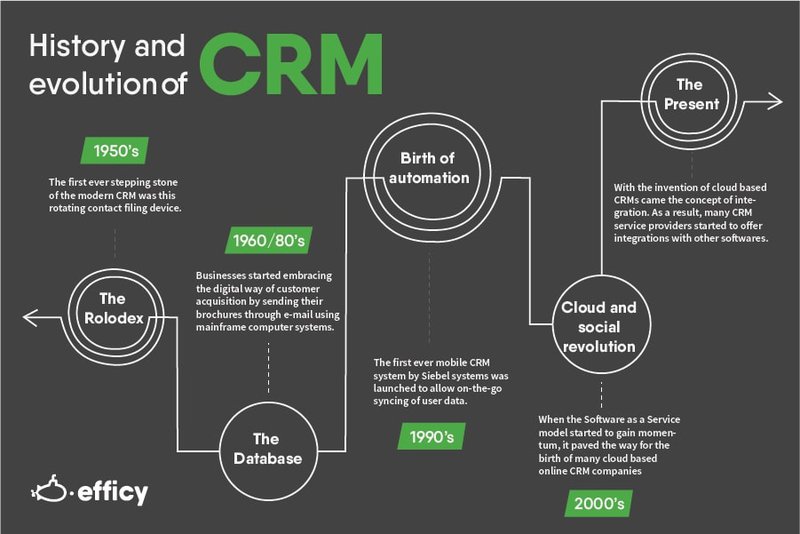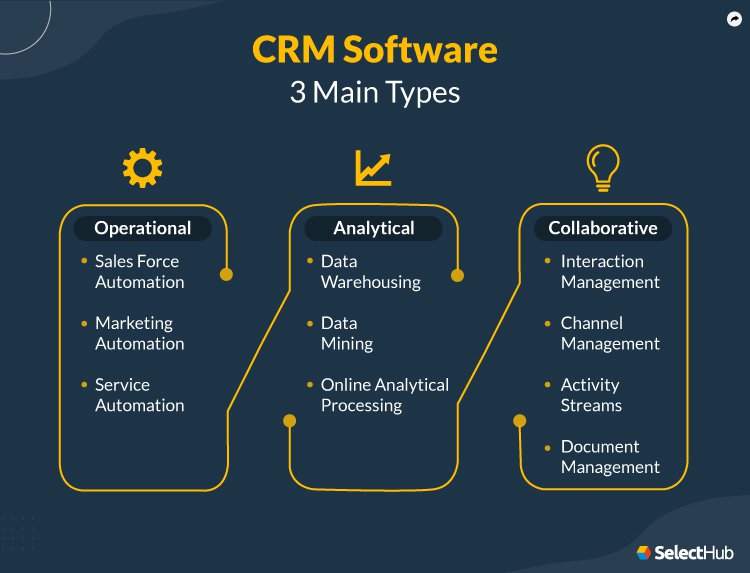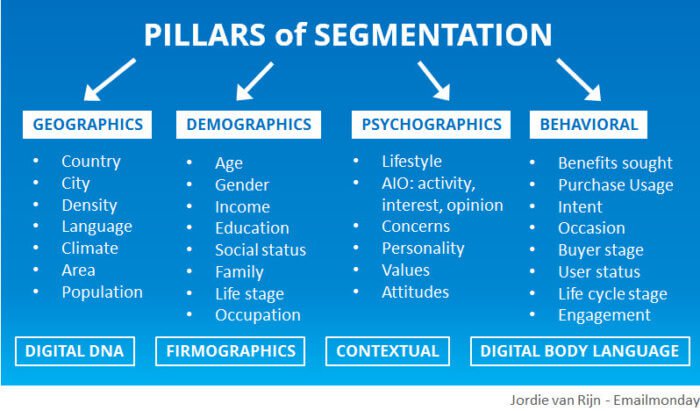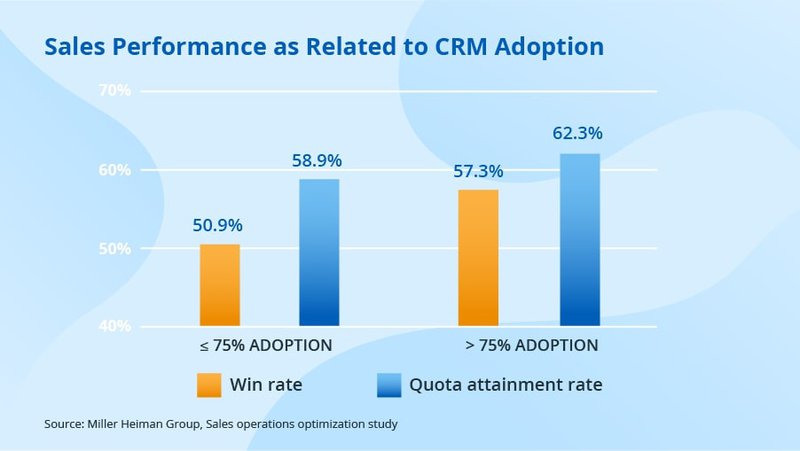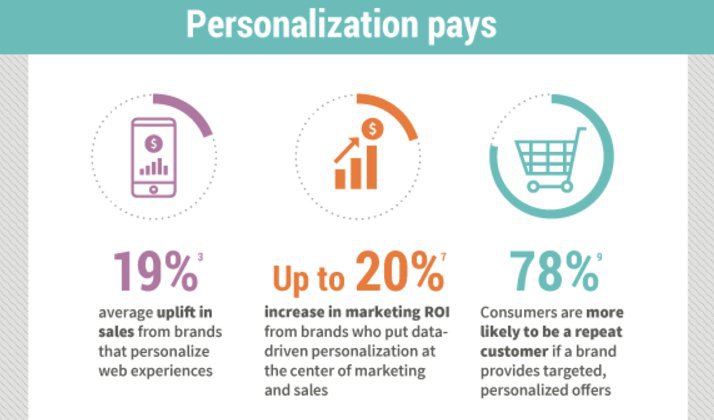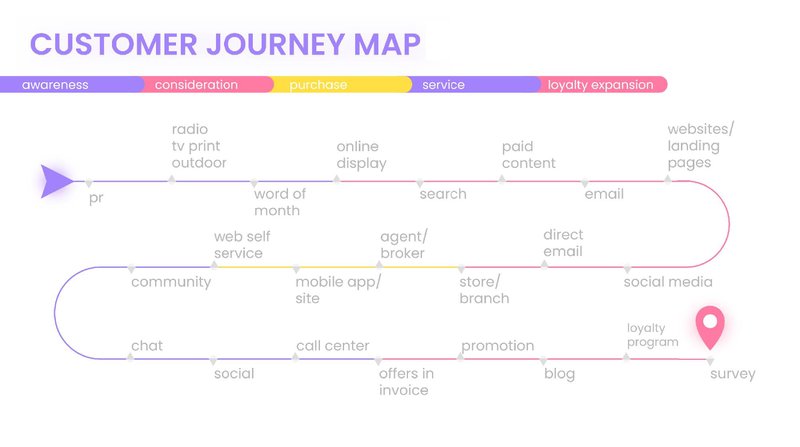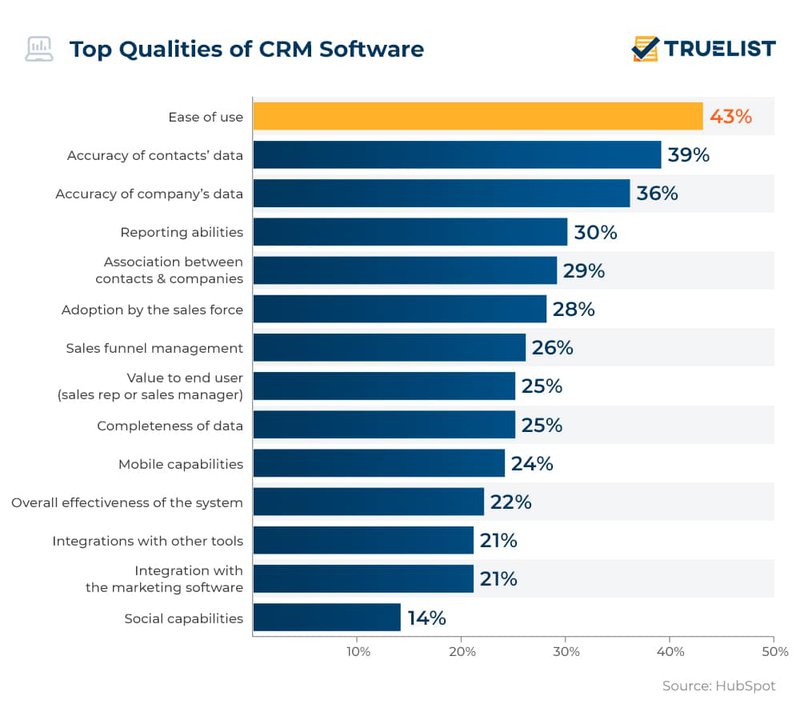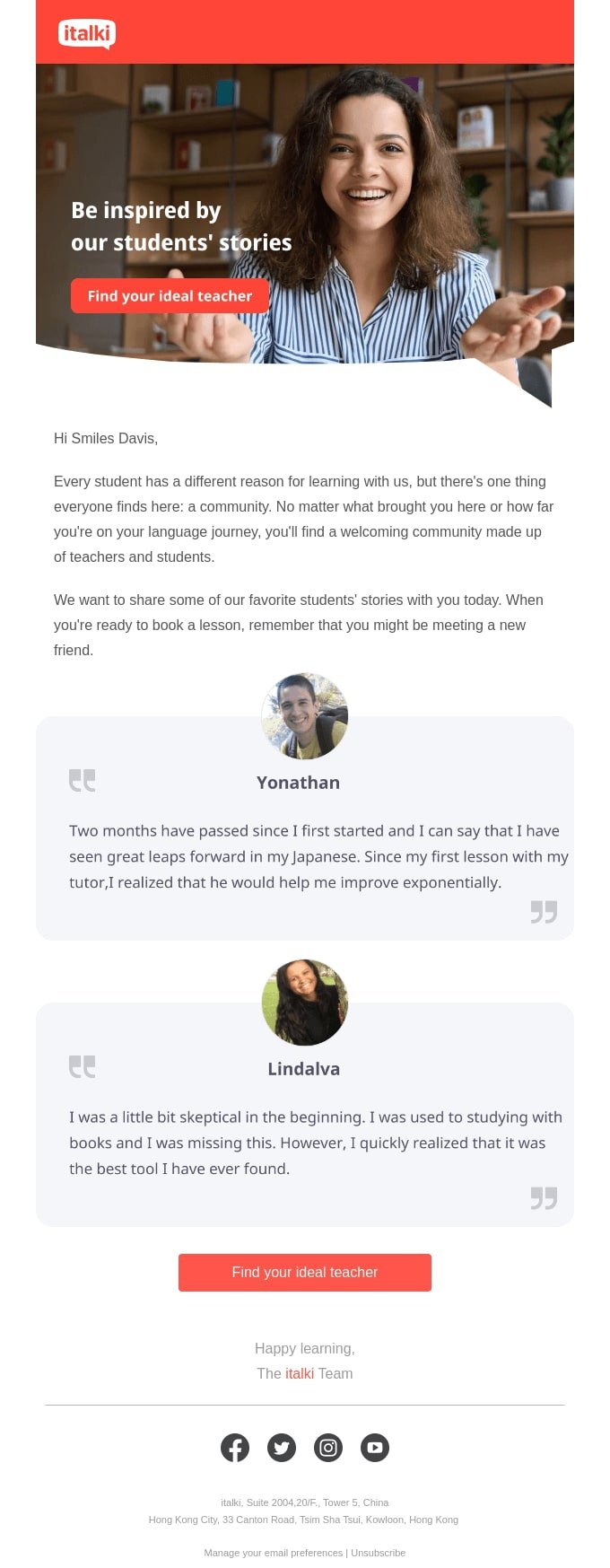7 Reasons To Consider the Mailchimp CRM For Your Business
Customer Relationship Management may not come to mind when you see the Mailchimp monkey logo. But maybe it should. Catch the scoop on Mailchimp's CRM platform.
Updated November 6, 2024
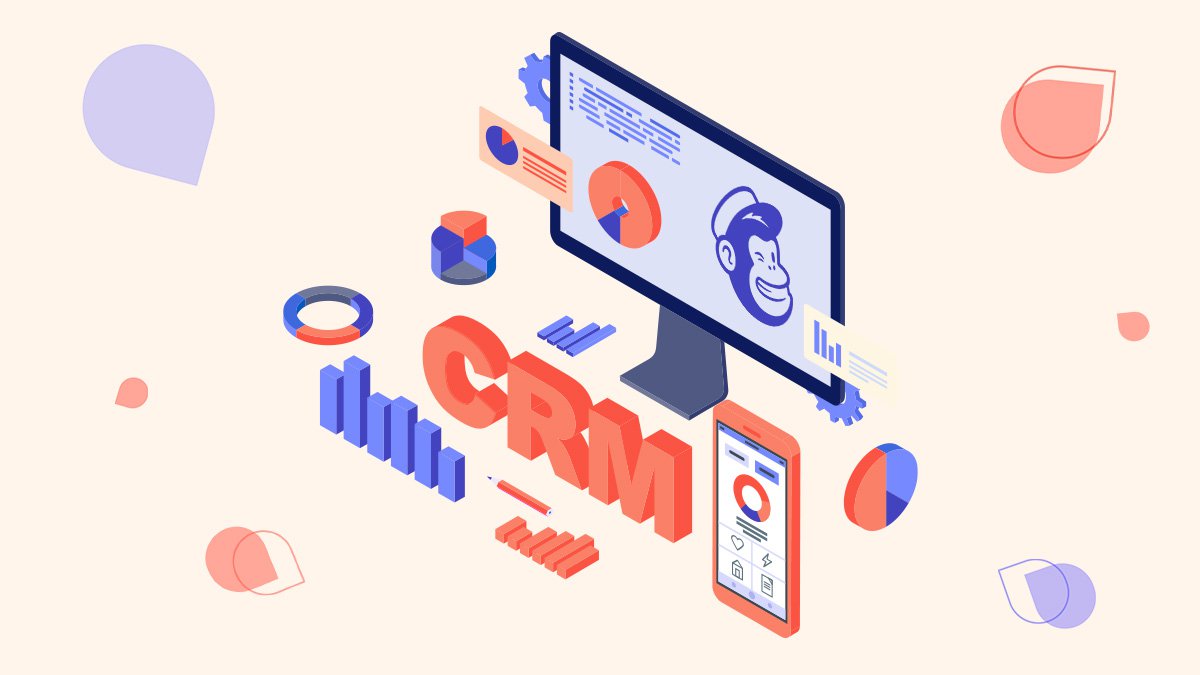
Imagine going into your favorite neighborhood store, where everyone knows your name and your order, only to find the nice people behind the counter have completely forgotten who you are.
It stings, right? It also makes you not want to go back!
That's similar to what happens when you don't have a customer relationship management (CRM) software to help you keep track of your customers. No matter what business you run or what size it may be, a CRM tool helps you stay on top of your customer data, contributing to email marketing that works, a sales process that feels truly personal, and support that connects with your customers.
And if you're in the market for an affordable, efficient, and perfectly integrated CRM, Mailchimp's set of tools might be just what you need. Keep reading to see why.
What is a CRM software?
A CRM software is a tool that helps your business manage your relationships with your customers. Teams use CRMs to track interactions, data, and notes about current customers or potential ones.
By serving as a comprehensive database, customer relationship management software stores vital customer information such as contact details, communication history, purchase behavior, and preferences. This centralized hub facilitates better understanding and customer engagement, resulting in improved customer loyalty and business growth.
What does a CRM tool do?
A CRM tool helps you collect, store, and organize customer data but also automates tasks like lead tracking, task assignments, and appointment scheduling. Most CRMs come with automation features, which foster consistency and save valuable time for sales and customer service teams.
Also, the abundance of data stored in a CRM helps teams make better decisions and uncover improvement opportunities in pretty much every department – from how marketers reach their target audience, to how sales teams move through their sales process.
Finally, the built-in analytics and reporting capabilities CRMs have help managers get an overview of customer actions and trends to gain crucial insights into customer behavior.
Is Mailchimp a CRM?
Mailchimp is largely known as an email tool, but it can go beyond sending email marketing campaigns to working as a decent CRM. Mailchimp integrates the necessary features specific to CRMs, like
- Contact management
- Audience segmentation
- Personalized communication
In bringing these features together, Mailchimp bridges the gap between email marketing automation and CRMs, allowing businesses to manage customer relationships more effectively within a single platform.
Types of sales CRMs
There are three main types of sales CRMs, each catering to different aspects of customer engagement:
Collaborative CRM
This type of CRM promotes interdepartmental collaboration by enabling teams to share customer insights and notes. Businesses can enhance the customer experience across various touchpoints by fostering seamless communication.
Operational CRM
Operational CRMs excel in automating routine tasks such as order processing, lead management, and customer support. This automation optimizes workflows and ensures consistent and efficient operations.
Analytical CRM
Analytical CRMs leverage data analysis to extract meaningful insights from customer information. By identifying patterns and trends, businesses can make informed decisions, refine marketing strategies, and tailor offerings to meet customer demands.
Why are CRMs important for marketers?
Although they are mostly seen as sales tools, CRMs play a pivotal role in marketing because the data collected and stored in them helps marketers with behavioral targeting.
CRM data helps marketers segment their audience and build personalized email campaigns that resonate. Additionally, CRMs enable marketers to track marketing campaign performance, analyze engagement metrics, and adjust strategies accordingly. This data-driven approach leads to higher engagement, conversions, and, ultimately, better ROI.
Pro tip: make sure all of your communication is GDPR-compliant. Check out our guide to Mailchimp's GDPR features.
Advantages of CRM for SMB marketers
A lot of small and medium-sized (SMB) marketers think CRMs are only useful for large businesses.
That's not true, though. SMB marketers can reap a lot of benefits from CRMs, too:
Deep customer insight
A CRM provides a unified platform to collect and manage customer data, facilitating deeper insights into customer behaviors and preferences.
Better campaign segmentation
With audience segmentation capabilities, SMB marketers can tailor messages to specific chunks of their mailing list, resulting in more relevant and impactful campaigns.
Improved tracking and reporting
CRMs offer real-time tracking and reporting, allowing SMB marketers to fine-tune strategies based on actual performance data, rather than outdated information and hunches.
Small and medium-sized businesses frequently avoid investing in tools like CRMs because they don't think they're big enough for such solutions. However, this attitude often backfires because, without a CRM, they miss out on the many benefits of using one – this actually hinders their growth.
Advantages of CRM for sales teams
Sales teams benefit significantly from the adoption of CRMs:
Better time management
"Time is money" might sound like an old cliche, but it's certainly true. Using a CRM eliminates manual work and significantly improves time management. More specifically, CRMs automate routine tasks like data entry, follow-ups, and lead assignments, allowing sales teams to focus on high-value interactions, healthy sales pipelines, and closing deals.
Improved customer relationships
Every salesperson knows nothing sells better and more recurrently than good relationships. Access to detailed customer profiles enables sales teams to personalize their approach, building trust and rapport with potential and existing customers, making them more likely to convert or become loyal customers.
Enhanced sales processes
Chaos is never a good business partner, but sales teams can feel it more stringently than anyone. With tight deadlines and high bars to clear, any kind of disorganization can prove costly.
CRMs provide a streamlined platform to organize prospects and track progress, ensuring nothing slips through the cracks. This organization facilitates better sales processes, improving conversion rates.
Boosted efficiency
No tool can guarantee success, but using a powerful CRM can bring sales teams one step closer. Automation and data-driven insights help teams close more deals in less time by eliminating redundant efforts. This increases efficiency and productivity.
Comprehensive reporting
Data makes the world go round, and sales teams are no exception. A CRM collects valuable data that teams can use to generate detailed reports on sales performance, helping businesses identify strengths, weaknesses, and areas for improvement.
Cost savings
No business has ever said "no" to saving a good buck. By automating manual tasks, CRMs contribute to cost savings by optimizing resource allocation and reducing operational overheads.
Personalization
The more you understand your Ideal Customer Persona and existing customers, the more you can tailor your solutions, connect more with your leads, and create customer-centric offers that turn into sales. CRMs provide an easy way to segment your leads and customize your messaging for each.
Increased sales
The combined effect of the aforementioned advantages translates to increased sales through better customer relationships and streamlined processes.
Advantages of CRM for business operations
CRMs offer broader advantages that extend beyond customer interactions and can benefit the business as a whole:
Improved communications
CRMs break down communication silos by enabling teams to access up-to-date customer information, resulting in better internal collaboration and customer service. More than anything, a solid CRM database helps your teams relate to the same source of truth, which improves inter-departmental relations and helps everyone be more efficient.
Automated data collection
Your business needs data like human bodies need water: without it, you'll dry up in a desert of hunches, presumptions, and fuzzy numbers. CRMs automate the data collection process, enabling businesses to make informed decisions based on real-time customer insights and performance metrics.
CRM software will also take manual data collection and management out of your team's hands. This improves their efficiency and reduces the probability of human error. To err is human, but there are tools to help you minimize that.
Enhanced workflow automation
CRMs don't just collect data – they also help manage it better. By automating workflows like lead assignment, task distribution, and report generation, your teams can focus on what really
CRMs automate data entry and updates, ensuring accuracy and saving time, which would otherwise be spent on manual data management.
Customer journey monitoring
It takes an average of eight touchpoints to make a sale. You won't be able to know, with absolute certainty, how your customers interact with your business, and what kind of journey they take before converting.
Still, CRM data can support your buyer journey mapping process and learn more about:
- Where your customers come from,
- What makes them tick (and click),
- And what tipped them over the edge into buying your product.
CRMs provide a comprehensive view of the customer journey, allowing marketers to track real-time interactions and make necessary adjustments to increase ROI.
Scalability
Innovation is great, but it's useless without scalability. As an SMB grows into a bigger business, its operations become more complicated and time-consuming. An effective CRM system is designed to scale with the business, ensuring that processes remain organized and efficient as the company expands.
How to choose a CRM as an SMB
The market isn't short of CRM solutions for every business size and pocket. That doesn't mean all Customer Relationship Management tools on the market are worth your time. Some may just not be a good fit, and that's perfectly fine You need to know how to sift through the ocean of options to narrow it all down to a handful of CRMs likely to fit your business.
Selecting the right CRM for an SMB involves strategic considerations, such as:
Ease of use
An intuitive interface is crucial for swift adoption, especially for SMBs without dedicated IT resources. Your team's already busy, likely juggling with more than they can even handle – adding yet another brand new tool to learn how to use can be burdensome.
Make sure the CRM you pick is as easy to use as possible. The more intuitive it is, the quicker your team will learn how to use it, and the more time it will free up for other tasks.
Comprehensive feature set
The features you need in a CRM depend on your business needs, but comprehensive feature sets are key when it comes to SMBs. You may not need all the features offered by all the tools on the market. Still, you should list those you want and ensure your chosen tool can provide them to you.
Analytics and reporting
Advanced analytics capabilities empower SMBs with insights into customer behaviors, marketing campaign effectiveness, and trends, enabling data-driven decision-making. Adding data into tables is nice and it can help you keep things in order – but it's analytics and reporting where the true power of a CRM shines through.
Integrations
A good CRM should have seamless integrations with existing software and tools, to enhance operational efficiency and minimize disruptions. Direct integrations save you time and help you stay on top of all your customer data without manual transfers from one tool to another.
Audience management tools
Effective list segmentation and targeting functionalities enable SMBs to deliver tailored messages and campaigns that resonate with their customers.
How can Mailchimp help marketers’ CRM needs?
Mailchimp offers a suite of features tailored to help your marketing efforts:
Centralize customer data
Mailchimp's CRM capabilities consolidate customer information, communication history, and interactions into a unified platform for easy access and management.
Segment your audience
Businesses can categorize their contact lists based on demographics, purchase history, and engagement patterns, allowing for targeted and relevant communication.
Organize contact data
Mailchimp ensures structured and accurate contact data, eliminating errors and simplifying contact management.
Personalize your campaigns
Marketers can create personalized content and messages using Mailchimp, fostering stronger customer connections and driving engagement.
Automate your marketing campaign
Mailchimp's automation features enable the scheduling and deployment of marketing campaigns, ensuring consistent and timely communication with customers. For instance, Mailchimp can help you create advanced email automation, such as:
- Winback campaigns
- Scheduled email flows
- A welcome email series for new customers
- Drip campaigns
- Special occasion campaigns (like Mother's Day emails)
Optimize campaigns
Through detailed performance tracking and reporting, Mailchimp empowers email marketers to identify successful strategies and areas for improvement.
Target new customers
Mailchimp's lookalike audience feature allows businesses to expand their reach by targeting potential customers similar to their existing customer base.
Mailchimp CRM use cases for SMBs
There are plenty of Mailchimp CRM use cases for small and medium-sized businesses. Some of the most common examples include:
- E-commerce: An online store uses Mailchimp CRM to track customer interactions, segment based on purchase history, and send tailored product recommendations.
- Consulting Champion: A consultancy firm can utilize Mailchimp CRM to automate appointment reminders, track client progress, and send out educational resources based on individual needs.
- Real Estate: Mailchimp's CRM helps with managing and nurturing relationships with potential buyers, sending personalized property recommendations, and automating appointment scheduling.
- Fitness and wellness: Track member interactions, customize fitness plans, and automate class reminders and offers for enhanced member engagement.
Top 5 CRM Tools
Of all the Customer Relationship Management tools on the market, the following come up very often in conversations.
Mailchimp
Mailchimp is a comprehensive, all-in-one marketing platform with CRM capabilities, designed to help businesses of all sizes manage their customer relationships. It offers robust features, including audience segmentation and automation capabilities.
HubSpot
A comprehensive CRM platform offering marketing, sales, and customer service tools, facilitating end-to-end customer management. However, HubSpot requires a larger budget, so it might not be an excellent fit for some types of businesses.
Freshsales
Freshsales focuses on sales automation and helps streamline lead management, deal tracking, and contact communication for enhanced sales efficiency.
Zoho CRM
A versatile CRM solution from Zoho, offering customization, analytics, and integration features to cater to various business requirements.
Here's a comparative look at these four CRM tools:
| CRM Platform | Key Features | Benefits | Accessibility |
|---|---|---|---|
| Mailchimp | -Holistic view of audience - Contact organization - Audience segmentation - Communication insights - Personalized experiences - Mobile app access | - Free plan with CRM features - Simplified and user-friendly interface - Data-driven insights for campaigns - Seamless mobile connectivity | Web and Mobile App |
| HubSpot | - Reporting dashboard - Contact and deal management - Marketing tools - Ticketing service - Integration options - Sales documents and tools | - Comprehensive features even in the free plan - Insights into activity and performance - Service team tools - Integration capabilities - Sales and marketing support | Web and Mobile App |
| Freshsales | - Tasks, appointments, and notes - Contact and account management - Deal options - Phone dialer - Conversation and chat tools | - Free plan includes key CRM functionalities - Deal and contact management - Phone dialer and inbound caller ID - Mobile accessibility - Chat and conversation features | Web and Mobile App |
| Zoho | - Views, tasks, events, and filters - Lead, contact, account, and deal management - Workflow automation - Marketing tools - Collaboration features | - Comprehensive free CRM features - Workflow automation and marketing tools - Collaboration capabilities - Web-to-lead and contact forms | Web and Mobile App |
Mailchimp CRM: Data-driven digital marketing, made easy
Mailchimp is more than "just" an email marketing platform. Many would consider it a "Marketing CRM software," and it's easy to see why.
Mailchimp offers an all-in-one solution for creating personalized digital experiences if you do inbound marketing and want to ensure your team is set up for success. With its data-driven approach to marketing, you can quickly create and deploy campaigns tailored to individual customer segments and preferences.
Not only that, but Mailchimp can also inform the entire sales process, from nurturing high-value prospects to post-sales engagement (including, but not limited to, the onboarding process). You can track customer journeys and make better decisions based on the data collected while providing a consistent brand experience across all channels.
All these features come with a user-friendly interface, seamless direct and third-party integrations, pre-built email templates, signup forms / Mailchimp popup forms, and pricing plans fit even for a tight budget that grows along with your business.
Need someone to help you make the most out of Mailchimp? Hire an email consultant vetted by Mayple! Contact us today, and we'll match you with the right person for your industry and business, all in a matter of days.
